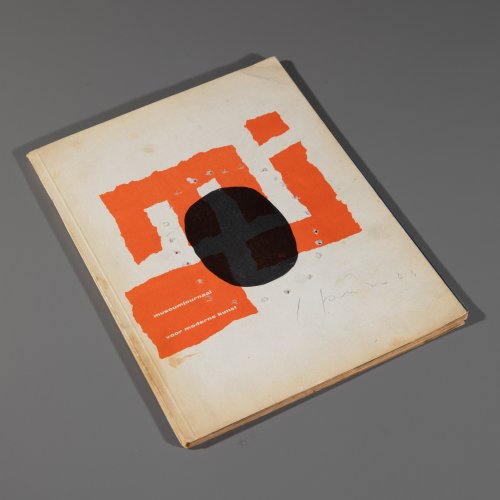Biography
Fontana was born in Argentina in 1899 to an Italian family of artists who moved to Milan in 1905. Fontana had a lifelong connection to Argentina and returned there for several years in the 1920s and 1940s. After finishing his formation, Fontana worked for a time in the studio of his father, who was a sculptor, before studying at the School of Civil Engineering in Milan from 1914 to 1915. From 1918 he worked as a civil engineer. At the end of the 1920s, Fontana began to work again in his father's studio, but now mainly as a sculptor. As he mainly focused on art, he began studying sculpture at the Milan Academy of Art. After having held his first exhibitions, he participated in the 17th Venice Biennale in 1930. Since 1935 he turned to ceramic objects and worked, among others, for Sèvres. In 1947, he initiated the 'Manifesto Bianco', propagating the abandonment of traditional use of materials and striving for a combination of different artistic genres such as sculpture, painting, music and poetry. He carried forward this intent in 1948 with the founding of the artist group 'Movimento Spaziale' (‚Spatial Art'), through which the static art forms were to be replaced by dynamic processes. The work was to emerge solely from the imagination of the viewer and be freed from any artistic and directional definition. Fontana wanted to achieve this through the perforation of images, which thus evoke a three-dimensional effect. In both, painting and sculpture, the represented space was to be seen as self-determined and in continuous development. Fontana now gave his paintings the titles 'Concetto Spaziale' ('Spatial Concept'). In 1949, a systematic change in his artistic work took place: He began to add holes and cuts to the canvas. By destroying the painting's surface, Fontana achieved the integration of it as part of the artwork itself, instead of viewing the canvas as a simple painting base. In this way, his art evolved away from traditional painting towards conceptual art, laying the foundation for groups such as ZERO and movements such as Nouveau Réalisme or Arte Povera. Through his most famous group of works, the paintings with vertical incisions, the canvas received a whole new meaning in painting and is now shaped, in addition to color, also with light and form.

